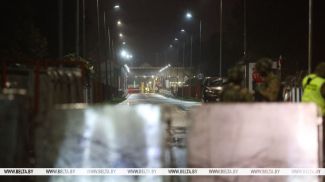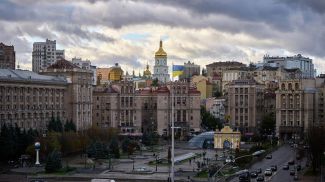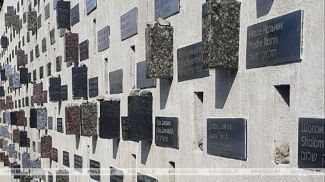MOSCOW, 6 March (BelTA) – The buildup of NATO forces in Europe is one of the key destabilizing factors for Belarus and Russia, BelTA learned from Chief of the CSTO Joint Staff Anatoly Sidorov at a press conference in Moscow on 6 March.
The CSTO Joint Staff chief said: “The challenges facing Belarus and Russia as CSTO member states include the buildup of the USA's and NATO's military operations in Eastern Europe. Despite their international commitments Brussels and Washington are busy deploying additional army command and control units and military contingents in Poland and Baltic states. Under the guise of rotating their troops they have actually kept and have been persistently reinforcing a multinational force in the region for several years already.”
In particular, according to the CSTO Joint Staff chief, in H2 2017 alone the deployment of four battalion-level tactical multinational forces was completed in Latvia, Lithuania, Poland, and Estonia. An armored brigade of the U.S. army was redeployed to Poland. A multinational brigade was deployed in Romania. “Thus, NATO's force on the bloc's eastern flank now numbers up to 12,000 military personnel,” said Anatoly Sidorov.
“Simultaneously Washington is taking consistent efforts to implement the program on deploying the European segment of the antimissile defense system, which is designed to negate the capability of Russia's nuclear deterrence forces. An American antimissile defense base has already been commissioned in Romania. The construction of another base continues in Poland. It may be commissioned by late 2018 and may reach combat readiness by mid-2019,” said the CSTO Joint Staff chief.
Speaking about operational and combat training of NATO member states, Anatoly Sidorov noted that in 2018 NATO intends to double the number of military exercises in Europe in comparison with 2017.
The lingering tense situation in Ukraine was also mentioned as a key factor destabilizing collective security in the Eastern Europe region.
Anatoly Sidorov attributed security problems in the Caucasus collective security region to frozen conflicts and the West's intention to build up its influence in the region. “The conflict in Syria continues having an extremely negative influence on the situation in Caucasus and other collective security regions,” stated the CSTO Joint Staff chief.
Speaking about the situation in Central Asia, Anatoly Sidorov pointed out that destabilizing trends are demonstrating serious growth over there, too. “The main threats in that region include the work of international terrorist organizations in Afghanistan and the possibility of their shifting their attacks to countries in Central Asia, the spread of religious extremism, and the increase in the illegal trade in narcotic substances,” he stressed.













